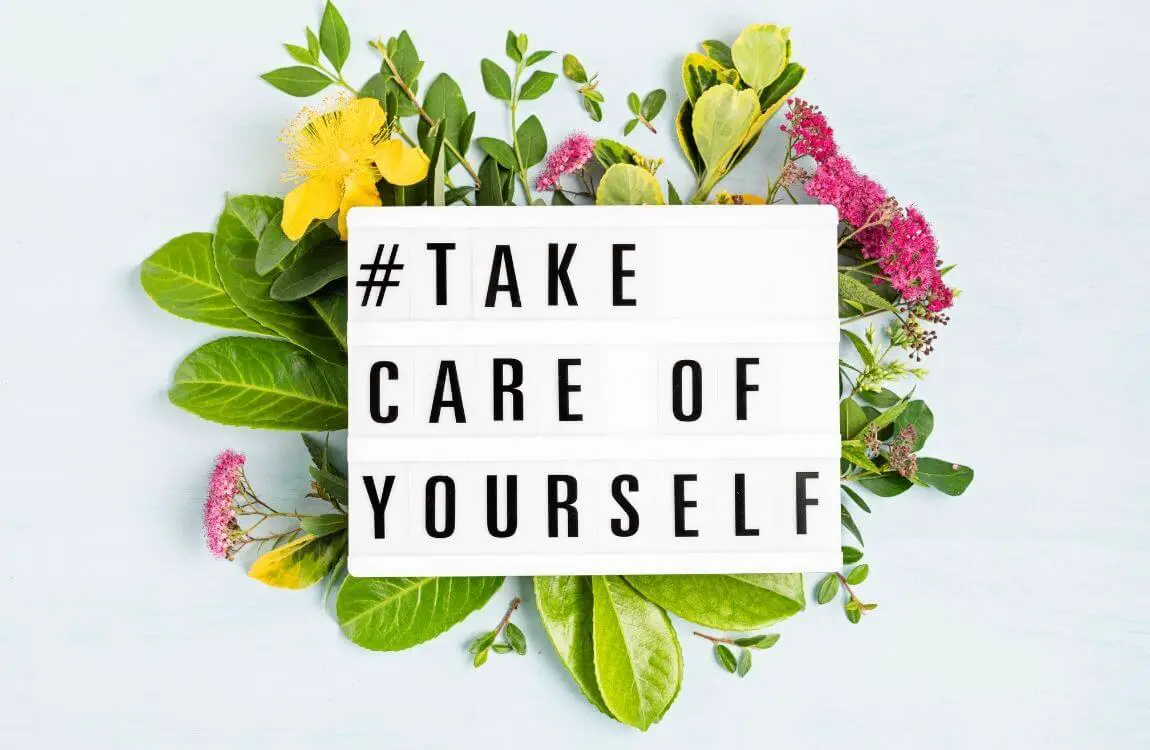How to cope with a chronically ill spouse?
So, how to cope with a chronically ill spouse?
So, how to cope with a chronically ill spouse?
I can summarize it in one sentence – focus on changing yourself rather than “fixing” your partner’s health.
It’s not easy to cope!
I hear you say, “it’s easier said than done mate!”
Yep! Sure, but if you are new to this blog, I can tell you one thing – it is certainly possible!
My wife suffers from endometriosis, fibromyalgia, and daily pain. Not to mention that she is a very anxious person, who went through a lot in life.
Panic attacks, OCD, depression, and suicidal thoughts to name a few.
My wife tried to take her own life on a few occasions, she even asked me to divorce her twice.
M did all this because of the guilt she felt that I wasn’t fulfilling my life being with her. She loved me so much, she was ready to make the ultimate sacrifice. Asking me to divorce her wasn’t easy either.
Life can be cruel for those who suffer, but my life wasn’t sunshine and puppy cuddles either. I went through a lot, I sacrificed my own time, my passions, and sometimes even my job in order to help her go through this.
But I’ll have you know, M came off antidepressants after 18 years of taking them and won the battle with her depression.
I couldn’t be more proud of her! I stayed by her side, I have no regrets!
M is still here, I still have a loving wife.
And despite the difficulties of living with a chronically ill wife, I have never given up hope.
If you are interested in our full story, feel free to visit ours About Us page, where you will find more details on both of us.
But going back to the subject… how to cope with a chronically ill spouse?
I won’t lie, it’s going to be a challenge, and you will have to find a balance between your partner’s demands and your own well-being.
But if you stick around, you’ll be rewarded with more love than you could ever imagine. Your intimacy will deepen, and your trust and bond will grow. It is going to be a hell of a ride, but it will all be worth it, my friend!
The number of people who suffer from chronic illness still grows.
Today you may find literally hundreds of blogs from the perspective of those who suffer.
How to cope with a chronically ill spouse when for every person struggling with chronic pain, there is an army of partners providing care, who are never mentioned!

The caregiver is forgotten.
There aren’t many articles on the subject of how to cope with a chronically ill spouse.
It is, however, extremely important.
Because I felt quite often isolated and unsupported. My conscience expected me to learn to understand her pain, but no one took care of me. I was angry at times but I never showed it to her.
She knew, but if I verbally acknowledged it, it would make her feel desperate to cross the line and leave this world.
It sounds sad, but I want to be fully transparent.
I struggled to find a community that understood me. I was expected to care but nobody took care of me.
Despite my needs and feelings, I became a house-band, a nurse, her cook, an advocate, her cleaner, and a shoulder to cry on. I had to man the hell up and deal with it.
I turned to the internet to find any support, guidance, or advice for someone like me. I found nothing…
This is the very reason I am writing this article. I don’t want you to feel alone, I understand you, I want you to know my friend.
But if you’re the one who suffers reading this, I want you to know, this isn’t a “who feels more desperate” contest. It’s radical honesty!
Because my wife didn’t even have a diagnosis for her chronic illnesses for over 5 years, I did not know how to support her from a medical point of view.
But what I knew deep in my heart, was that she needed to feel safe and wanted.
I went to her every single doctor, hospital, group, and private psychotherapy appointment!
After finding out about her endometriosis diagnosis, I found some sense of direction. I joined online support groups for endometriosis, and various anxiety, OCD, and other mental health groups.
I’ve learned a lot. But the most important lesson was to listen, which I struggled with at the beginning.
I always wanted to help by constantly suggesting something new, I did not listen but yapped instead. That made her often upset, even though I did not know why. I thought I was helping, but in reality, I was interrupting.
But I’ve learned to listen and her mood began to improve.
In the beginning not being sick myself, I didn’t know how to handle things.
The strain that is put upon the supporting loved one may push both people’s understanding of “in sickness and in health” to its breaking point.
And however, M asked me to divorce her on two occasions because she felt sorry for me, which made me realize how much she loved me.
I simply couldn’t walk away!
Many men leave their chronically ill partners because they simply don’t want to stick around, they are too selfish to man up and deal with things like real men do.
I’ve heard enough stories of women suffering from endometriosis to say, that is quite common.
Personally, I can openly say – these men are not men. They are weak and selfish. Sadly, they will never grow up.
But there are also men who care, and there is no shortage of us, however, only a handful goes to the length of keeping them company at their appointments and support group meetings.
I remember once going to one of the endometriosis conferences with my wife. They were run in London by specialists in the field, and it was extremely useful to all the participants.
The place was packed with people. Sadly, there was a handful of men. Three to be exact.
99,9% of the crowd consisted of women. I felt sorry for them.

Women are abandoned…
Of course, not all of them were in relationships, but those who were, I really felt sorry for. Naturally, some of us had a chat afterward and women just confirmed my worries – women are often abandoned.
I remember one of the guys passing me in the corridor. We did not exchange a word. He just nodded as if he knew what I was thinking. He smiled, and I smiled. He felt what I felt, without saying a word.
Men don’t express their feelings in the same manner as women do. We tend to keep it all to ourselves.
Unfortunately, the study shows, that spouses who give care are six times more likely to be depressed than spouses who do not need to be caregivers.
The men who walk out when their wives become ill are in my opinion the lowest of the low. They are NOT men.
Not only do they chicken out, women feel abandoned, unwanted, disrespected, and the list goes on…
And to top that up, studies show that men are far more likely to leave an ill partner than women.
So, what was it about chronic illness that drives men away? Cowardliness, selfishness, greed? Or is there more to it?
Well, I never abandoned my wife. I had to educate myself on the topic.
I decided to run a little survey on Facebook, Twitter, and Instagram. I asked women who visited my blog about their relationships.
To my surprise, within a week, I received 200 messages.
These women suffered from endometriosis. They were very open and helpful. I was showered with warm responses which left me to realize, that there was a gap in the endo-sphere. Men need to be educated about the topic.
But talking about endometriosis alone in search of answering the question, of how to cope with a chronically ill spouse, isn’t enough. Because there are more chronic illnesses than one, endometriosis alone gave me some insides into the topic.
As it was in the case of my marriage, my wife and I had some struggles coming with the terms of endometriosis.
For those who don’t know, sex is a huge topic in the endometriosis community.
Here’s why…
Endometriosis can have a negative impact on couples and their quality of life in complex ways.
It can have a big impact on day-to-day life including work, parenting, simple tasks, even your social life. This may create an extra strain on couples, cause a lot of anxiety.
There’s always a big impact on work, causing financial strain on both partners.
But when it comes to sex life, without a doubt, this is a very important part of any relationship. Sex plays a big part. Sadly, women suffering from endometriosis struggle with sex a lot.
Pain during and after sex is an extremely common symptom of endometriosis. Women experience it along with some of the other endometriosis symptoms.

Sex tips!
However, pain is not the only factor that can affect sex life. Sex and intimacy might be affected by a range of other things, including:
- bleeding during or after sex; general fatigue and feeling unwell
- reduced sexual desire because of medication
- low mood
- the stress of trying to get pregnant
- loss of body confidence and desire
Both of you may experience feelings of guilt and sadness as well as feelings of loss associated with the lack of intimacy, closeness, and affection.
You may also feel hesitant and even tentative and may be reluctant to approach your partner in fear of causing pain but (as they say) there is a simple solution in this madness, it’s communication, so talk it out.
Women may face a difficult choice between avoiding sex or enduring painful sex in order to experience intimacy with their partners.
My wife talked to me about it, if you talk, you will resolve every issue related to it. Remember guys – sex isn’t only about penetration. There is much more to it!
Our marriage is based on trust and we always talk about problems that may occur, that also relate to sex. Sex is a part of life, There should be no stigma attached to it! So, before you let your emotions run high, have a chat with your partner, just talk.
When it comes to the male partners of the women who suffer from endometriosis, there is little support and information for them.
Partners are often marginalized, and it is unusual for them to be asked how living alongside someone with this condition impacts their mental health.
Society expects men to be strong, to remain calm and in control. Men always try to hide their emotions. I tried it too. It’s in our nature, our genes, our psyche.
But is it healthy? No. Long-term it can be unhealthy.
So talk things out, express what you feel. It will allow you both to let go of accumulated emotions and find solutions to the challenges that chronic illness brings to your relationship.
Remember, that despite all the difficulties, endometriosis can make relationships stronger (as it did in our case). Partners may need to communicate and work together to address the impact endometriosis can have.
But it relates to any kind of chronic illness. Sex may not be the worry there but providing care and support can help you both appreciate one another more.
Dealing with the challenges and trying to find a way through difficulties together can bring you closer and strengthen your relationships.
When people are diagnosed with chronic illness, they struggle to cope with it in every way. Adding the burden felt by that person of being responsible for “ruin their partner’s life” is immense!
Let’s face it – men are more visual than women. They are more likely to be attracted by what they see, therefore they are more likely to reject their partner. Sometimes it isn’t intentional.
One of the reasons might be the male lack of understanding of how women feel is that pain is invisible. Women who suffer (like my wife) from endometriosis and fibromyalgia experience their pain doubled.
However, they struggle to show how it feels.
The very fact that you cannot explain how you feel, or you’re simply fed up with endless repeating, make you feel stressed.
This was always the case for my wife, and that is the case for many women.
How to cope?
And so the question “how to cope with a chronically ill spouse” is a complex one.
The caregivers have to give a lot of attention to their partners, but at the same time, cannot neglect themselves. I ignored my own feelings until they began to accumulate.
For some time I didn’t know what to do with them, but eventually, I began to write some notes. I needed this. It felt very therapeutic. It was a writing therapy that relieved my tension and all accumulated emotions.
I began writing my daily notes to capture my feelings. I never wanted my wife to know how I felt because the burden of mental illness was difficult for her to deal with already.
But I needed to do this for myself, it felt right.
My daily notes grew to the point, that after putting them together and adding necessary pages, I wrote a book titled “No amount of anxiety will push me away!”, and these words stay true today. This book is yet to be published…
I went through a lot of emotions since but I have to say that I am grateful for this experience because if it wasn’t for that, I would not have learned how to support my wife better.
I believe that you can do it to, whoever you are – a man or a woman – you will benefit from writing.
Writing is a medicine for your mind. Whenever you feel exhausted mentally or emotionally, writing things down will help you structure your thoughts and bring peace to your mind.
Many therapists recommend investing time in writing every day to improve your mental well-being.
If you want to stay on the quest to know how to cope with a chronically ill spouse, writing is the way to express your frustrations and anger, but it is also very beneficial if you want to write something nice to your partner, whenever you feel grateful.
It works both ways. Gratitude is very important. It helps you stay on the right path.
But there are many ways in finding the answer to how to cope with a chronically ill spouse. Let’s look at them one by one:
1. Communication. The Holy Grail of it all, and one of the most important things in any relationship.
Relationships always suffer when people don’t discuss their problems. They may have no easy or obvious solution, but that lack of discussion can lead to feelings of distance and a lack of intimacy.
Finding a way to talk openly about your challenges is the first step towards problem-solving and feeling closer.
2. Ease your negative emotions. Apart from writing, you need to identify the root of your worries and take steps together to help one another find relief from stress.
- To feel in control, learn more about the chronic condition that your partner suffers from.
- Consider counseling. You can go together (like myself and M) or separately. CBT is the short version of Cognitive-Behavioral Therapy. It helped my wife immensely, and at the same time, eased the pressure on me because I felt that she was safe again for me to leave her at home, and resume work.
- Watch for depression because it is a normal response to chronic illness. It drove my wife to the verge of suicide attempts.
- What’s very important is to acknowledge the loss of the way your relationship used to be. You are both experiencing something new, but it doesn’t mean that your life is over.
3. Express your own needs. I can’t stress this enough!
You have to realize that if you don’t take care of yourself, you won’t be able to help your partner. That’s just the way the cookies crumble my friend.

I neglected my passion for gym workouts for months. It left me upset, angry, impatient, moany. My dear wife felt guilty over it, even though it was my decision to give her my entire focus.
But it wasn’t healthy for me! Only when I came back to the gym, did both of our moods get better. Take care of yourself. Do more of what makes you happy.
You must allow yourselves time to miss each other, even if for 2 hours. It will strengthen your bond.
Chronic illness can often shift the balance of a relationship. The more responsibilities one of you needs to take on, the greater the imbalance.
Try not to do everything for your partner, allow him/her space to do something. Your loved one wants to feel wanted and needed. Don’t take this away from your spouse.
You need to talk to one another about how to trade tasks and responsibilities. Again – communication is the most important to find out how to cope with a chronically ill spouse.
4. Watch your own health as the caregiver. I already touched upon that. Let’s expand it a little…
Whichever one of you is the caregiving partner needs to pay attention to your own physical and emotional health.
To relieve stress, you may do a physical activity, which provides an outlet for your stress. You may read a book, go swimming, visit a friend. Whatever you do, take a break. You deserve it!
Otherwise, you will reach burnout, which can be a risk of:
- Loss of interest in the activities you used to enjoy.
- Withdrawal from your friends.
- Feeling irritable, hopeless, and helpless.
- Changes in appetite and weight.
- Changes in your sleep patterns.
- Emotional and physical exhaustion.
5. Connect with others! Chronic illness can be isolating.
Having friends around or on the phone is vital to stay sane. Today is much easier than it used to be. We have the internet and can even use Facetime. God bless technology!
If you’re the caregiver, you should feel free to socialize alone without feeling guilty about it. It took me time but I managed to change my ways and stopped feeling guilty.
It did not mean, however, that I forgot about my wife. She was just on the other side of the phone…
6. Address any financial strain. Let’s face it – it’s a must!
Chronic illness can put a huge financial strain on both of you. Your partner may have lost income because the illness made it impossible to work. Increased medical expenses add another strain.
If like me, you are the caregiver, you may not be able to leave a job but you will feel like going back to work, you will abandon your loved one.
The best advice I can give you is to start blogging. This is so far the best way to financial freedom, independence, and having your dreams fulfilled whilst spending full time with your family.
It doesn’t mean leaving your job. I work full-time 50 hours a week, care for my chronically ill wife, and blog on the side.
If you need some encouragement, I cannot recommend Alex and Lauren enough!
They will teach you how to get from zero to hero. From the very basics of starting a blog to earning 6 figures a year! Yes – you heard that correctly! This couple earns 200K per month. You don’t believe me? Here’s the evidence:
How to cope with blogging…
Alex and Lauren make most of their money from their successful courses:
They provide a lot of information on their pages before you even decide to purchase them. I’d like to give you a little bit of that here.
Feel free to buy them through these links. Alex provided them for us so if you decide to buy their courses through the links in this article, you’d help greatly.
Alex and Lauren will give us a commission from it (at no extra cost on your part) and that will help us with the costs of running this very blog.
All you need to build successful blog is here!
The ultimate solution for starting a blog is to make over $1,000 per month and all that without being a tech wizard or a scammy salesperson!

The solution for beginner bloggers to drive 10,000 – 100,000 FREE monthly visitors to your blog (without any ads required) – simply on autopilot!

The best formula for earning 6 figures from your blog with digital products and services – without being scammy or needing to be an “expert”.

I truly hope that it gave you some insight into the question – how to cope with a chronically ill spouse?
There is so much more, I’m only getting started!
And we both want to know your opinion, if you have any questions, don’t be afraid to ask.
Let’s meet in the comments below, take care for now!


About Me
Hi, I’m Lucjan! The reason why I decided to create this blog was my beautiful wife, who experienced a lot of pain in life, but also the lack of information about endometriosis and fibromyalgia for men…
